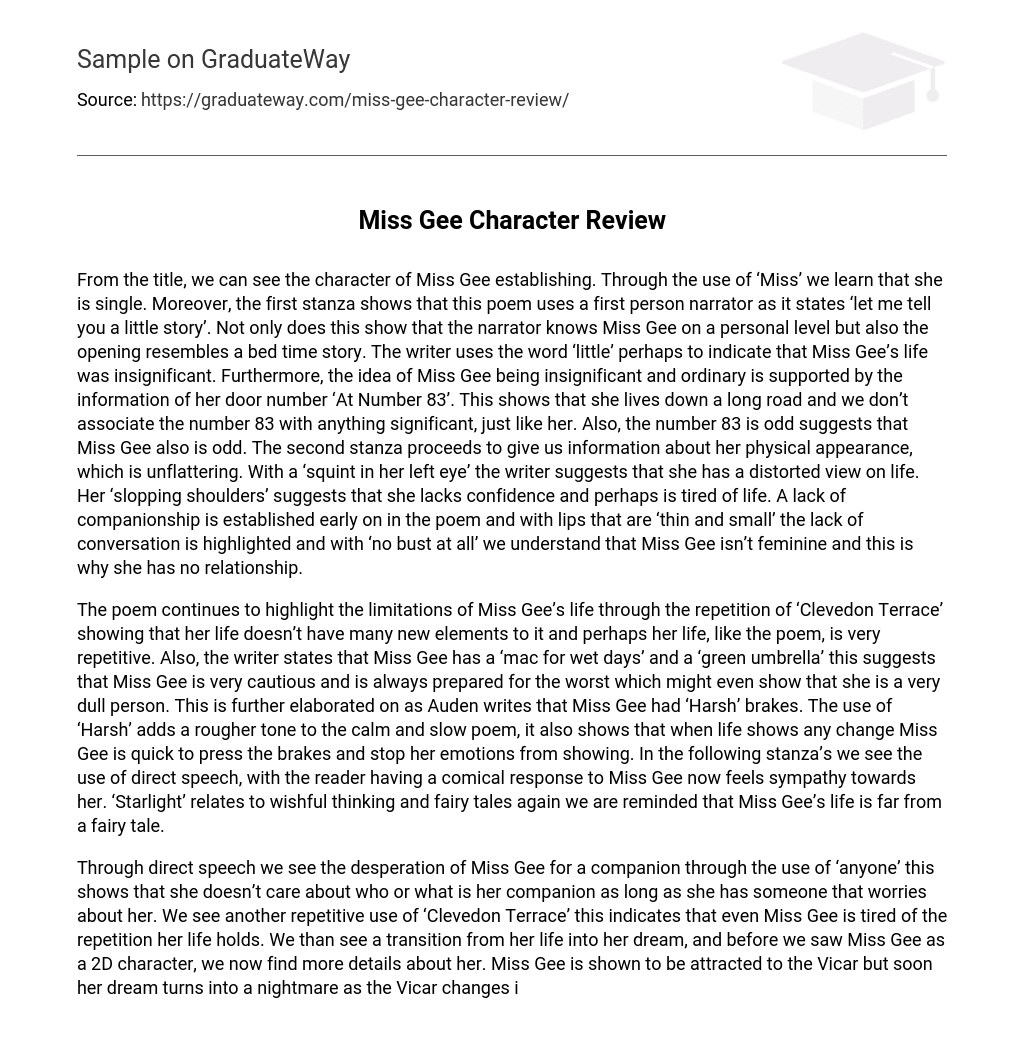The character of Miss Gee is portrayed through the use of the title. The inclusion of ‘Miss’ indicates that she is unmarried. Additionally, the first stanza utilizes a first person narrator who shares a personal connection with Miss Gee, resembling a bedtime story. The use of the word ‘little’ further emphasizes her perceived insignificance. This notion is reinforced by her door number, which is ‘At Number 83’, suggesting a long and unremarkable road. Likewise, this number’s oddness conveys Miss Gee’s own peculiarity.
Throughout the second stanza, there is a depiction of her unappealing physical appearance. The mention of a ‘squint in her left eye’ implies a distorted perspective on life. Her ‘slopping shoulders’ indicate a lack of confidence and weariness towards life. The poem establishes Miss Gee’s isolation early on, as evidenced by her ‘thin and small’ lips alluding to minimal conversation, and her ‘no bust at all’ signifying her lack of femininity and consequently, romantic relationships.
The poem emphasizes Miss Gee’s limited life through the repetition of ‘Clevedon Terrace,’ indicating the lack of new experiences. This repetition also suggests that her existence is monotonous, similar to the repetitive nature of the poem itself. Additionally, the poet depicts Miss Gee as cautious by mentioning her ‘mac for wet days’ and ‘green umbrella,’ implying that she is always prepared for the worst. This portrayal may indicate that she is a dull person. Furthermore, Auden describes Miss Gee’s brakes as ‘Harsh,’ which adds a rough tone to the otherwise calm and slow poem. It signifies that Miss Gee quickly puts a stop to any change in her life, suppressing her emotions. As the poem continues, direct speech is used, which elicits comical responses from the reader and evokes sympathy toward Miss Gee. The mention of ‘starlight’ alludes to wishful thinking and fairy tales, further emphasizing that Miss Gee’s life is nothing like a fairy tale.
The text demonstrates Miss Gee’s longing for a companion and her willingness to accept anyone, revealing her desperation. The use of the word ‘anyone’ highlights her indifference towards the identity of her companion, as long as they care about her. Additionally, the repetition of ‘Clevedon Terrace’ indicates Miss Gee’s weariness with the repetitive nature of her life. Moving from her real life into her dream, we gain more insight into Miss Gee’s character. While initially attracted to the Vicar, her dream takes a nightmarish turn as he transforms into a charging bull. Given Miss Gee’s religious nature, this may symbolize the potential consequences of yielding to temptation.





